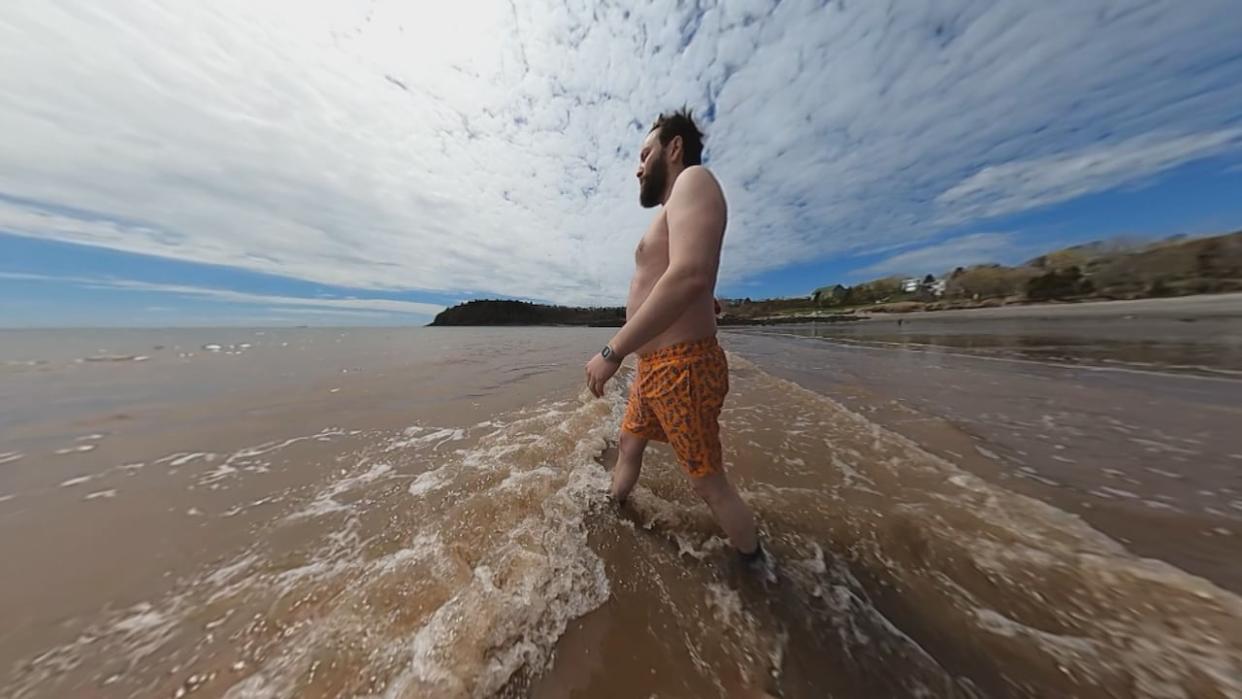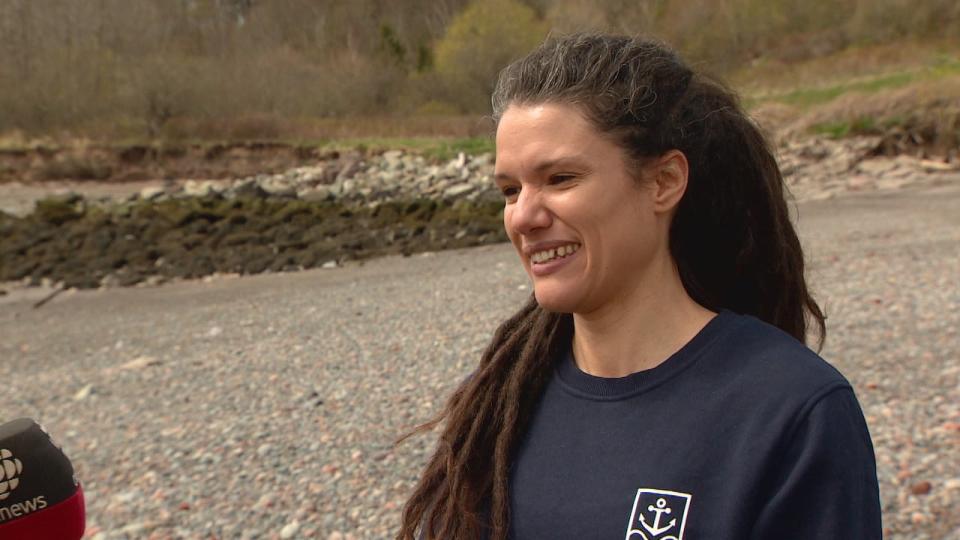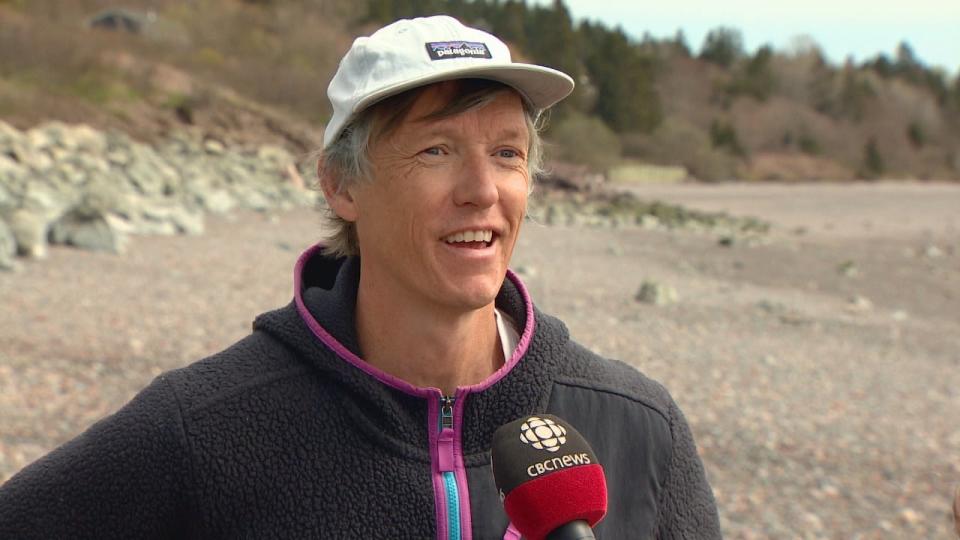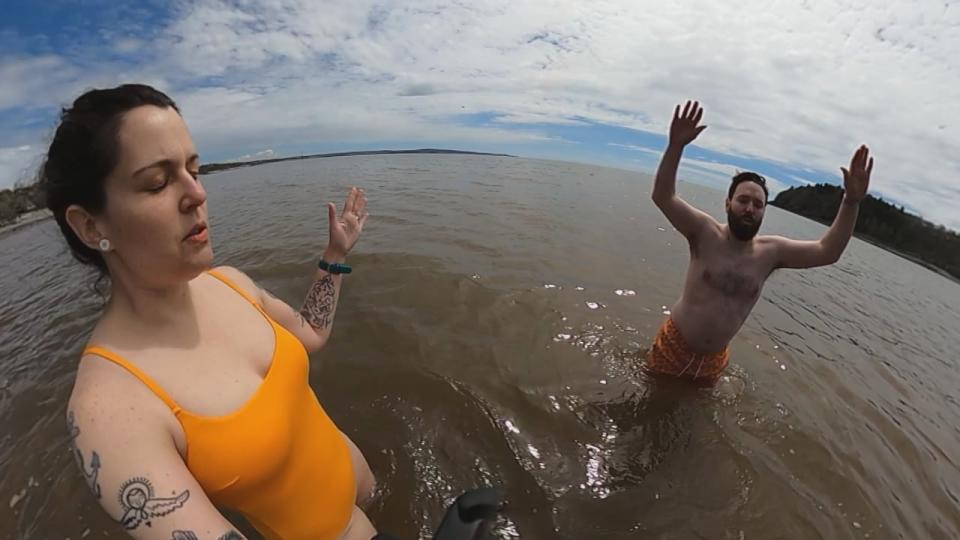Turning to frigid waters in the face of grief

- Oops!Something went wrong.Please try again later.
- Oops!Something went wrong.Please try again later.
Cambria Olding found out about the death of her father and then had a miscarriage in quick succession, two devastating events that influenced her decision to plunge into cold water every day for 100 days.
The experience might not sound very comfortable, but Olding says that's the point.
"One of the biggest benefits is the resiliency part of it," she said. "We're putting ourselves in discomfort. Not everyone wants to go out in freezing cold water, but we do it anyways."
Olding said that experience, knowing she could withstand it, helped her gain perspective on her grief.

Cambria Olding started initiating others in the experience of cold plunging, after using the practice to cope with her own grief and loss. (Graham Thompson/CBC)
It's a process that filmmaker Scott Munn has leaned on for 15 years — he's been sober for the past 11.
"I've found cold plunging gives me a very similar rush to other things that I used to involve myself in," he said. "It's challenging myself to do something that's really uncomfortable, and the benefit of it is phenomenal."
Munn directed and produced a film about Olding's cold-plunging journey, which is set to debut at the Outdoor Outdoor Film Festival in Long Reach on June 1.
He hopes it will inspire people to take the plunge.
"This is something that's very accessible to anyone. We have no shortage of cold water in New Brunswick. It doesn't require a membership of any kind or equipment," Munn said.
"You need a pair of shorts and a will."
WATCH | The CBC's Julia Wright takes the plunge:
Olding, who is trained as a yoga teacher, took her first cold plunge in 2021.
"I was like, this is not for me, I can't do this ... I was able to stay [at waist level] for two minutes because of the coaching," she said.
"When I got out of the water, I just had this, like, emotional release. I was crying, just because I could realize then the power of my mind and how I'm able to kind of overcome fear and challenge."
After 100 days of cold plunging to cope with her grief and trauma, she set out to guide others through the process with her business, East Coast Plunge.

Scott Munn chose to produce and direct a film about cold plunging after experiencing the practice firsthand. (Graham Thompson/CBC)
For those new to cold plunging, Olding and othes provide coaching on how to do it safely.
For example, she recommends staying in for two minutes or less, keeping your hands and head out of the water, and wearing water shoes.
Anyone with chronic health conditions or concerns should consult with a doctor beforehand, she added.
Before anyone gets in the water, Olding said, they are led through breath work and some gentle movement. After the dip, participants are guided through a grounding meditation.
Alex Berry, also with East Coast Plunge, said awareness and breath work are central to cold plunging.
"You're going to be very aware of your breath, and as you hold onto that breath awareness, you're going to keep that with you as you go in the water," he said.

Julia Wright, host of Information Morning Saint John, in a meditative stance with Alex Bell. (Julia Wright/CBC)
"You're going to feel that it's actually quite comfortable because you're not going to hyperventilate. You're going to be very in control."
Ultimately, Olding wants people to challenge how they see their own limits.
"If people say they can't do it, I would just question you, 'what if you could, though?'" she said.
"What if you could?"

